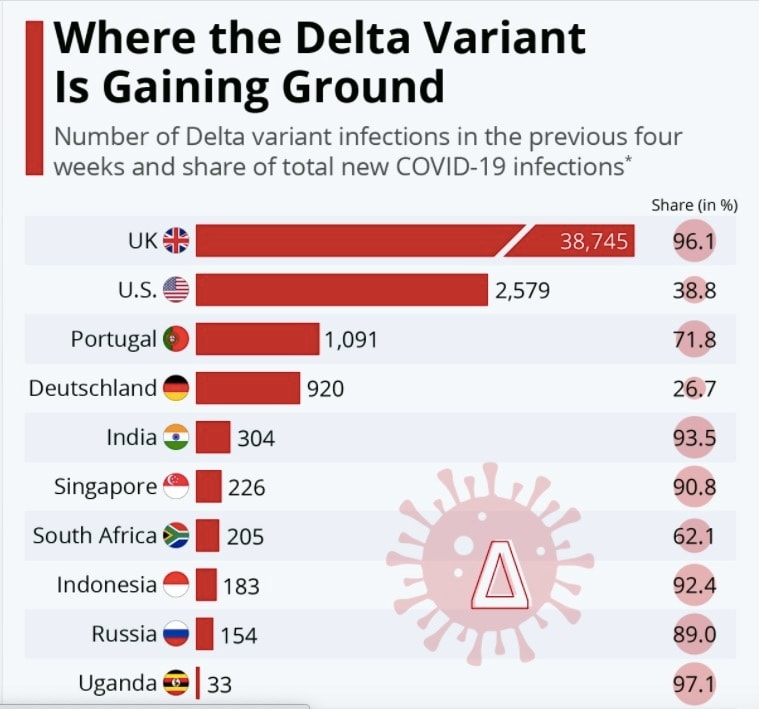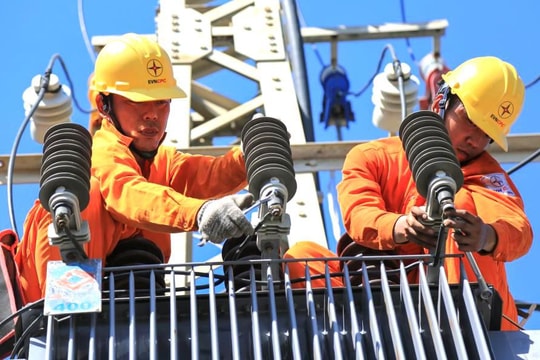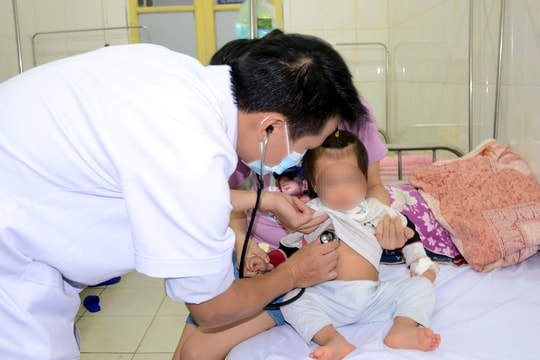The danger from people who do not get vaccinated against Covid-19
People who do not get vaccinated against Covid-19 not only put their own health at risk, but may also pose a danger to others if they contract the disease.
|
CNN news agency quoted Dr. William Schaffner, professor of the Department of Infectious Diseases at Vanderbilt University, USA, as saying: "People who do notvaccinationcould become variant factories. The more people who are not vaccinated, the more opportunities the virus has to thrive.”
The coronavirus cannot survive and grow outside a living cell, so it needs one to survive. If you are not vaccinated, you could be a target. The virus will invade your body and, once inside, will make millions of copies of itself. But that frantic replication process sometimes goes awry and mutations are born.
A series of new mutations have emerged.
All viruses can mutate, or at least change and evolve. Most of the time, these changes don’t really matter to the virus and may even make it weaker. However, sometimes a virus’s evolution results in a random mutation that gives it an advantage, such as better transmission, more efficient replication, or the ability to cross-infect multiple hosts.
“Every time a virus mutates, it has a new base from which to make more mutations,” says Andrew Pekosz, a virologist and immunologist at Johns Hopkins Bloomberg School of Public Health. “Viruses that don’t spread can’t mutate.”
Variants of the novel coronavirus have now emerged around the world. There is the B.1.1.7 (Alpha) variant first detected in the UK, the B.1.351 (Beta) variant found in South Africa. The Delta variant, or B.1.617.2, first appeared in India. A series of other variants have appeared in the US, including B.1.427 (Epsilon) in California, and B.1.526 (Eta) first detected in New York.
|
| Delta variant infections have appeared in many countries. |
Last summer, the D614G mutation traveled from Europe to the US and then spread around the world. The change made the virus replicate better, eventually replacing the original strain. This version was around before people started naming variants.
Most of the newer variants have made additional changes to D614G. The Alpha variant, also known as B.1.1.7, became the dominant variant in the US in late spring due to its increased transmission capacity. Now the Delta variant is even more contagious and has become the dominant variant in many countries, including the US.
Tests on human airway cells in Petri dishes showed that Delta replicates much faster than previous variants. This means that the amount of virus hiding in people's respiratory tracts could be higher. Samples taken from the nose and throat of the test participants proved this. The amount of virus found was higher than with other variants.
Vaccines slow transmission and reduce deaths
Vaccination can help slow the spread of the virus, but it cannot stop it completely. Current Covid-19 vaccines do not prevent all infections, nor do they prevent people who have the virus from passing it on to others. However, vaccination does make it harder for the virus to spread.
|
| Number of people vaccinated (at least one dose), not vaccinated and willing to be vaccinated, not vaccinated and unsure, and unwilling to be vaccinated in some countries. |
People who have been vaccinated with the AstraZeneca and Pfizer Covid-19 vaccines and then become infected with the Alpha variant are half as likely to transmit the virus as unvaccinated people, experts say, which is why doctors and public health officials have been so keen to encourage more people to get vaccinated.
British studies have found that the Delta variant is about 60% more transmissible than Alpha. About half of the adults infected in the recent Delta variant outbreak in Israel had received the Pfizer vaccine.
In the UK, where most of the population has been vaccinated, and Uganda (where many people have not yet been vaccinated against Covid-19), the Delta variant is present in most new cases. The same is true in Australia and parts of Asia.
The good news is that, according to vaccine research from Western companies, vaccination reduces the risk of death and severe illness in people infected with the coronavirus, regardless of the variant.
The transmissibility of the Delta variant, combined with the easing of restrictions, has led to a resurgence in cases in the UK. However, thanks to vaccination, deaths have not increased. In Scotland, the AstraZeneca vaccine was 60% effective in preventing disease caused by the Delta variant, while the Pfizer vaccine was 79% effective, according to a study published in The Lancet.
Therefore, according to scientists, to bring maximum health benefits to the community, it is necessary to vaccinate as many people as possible, to the point where the virus is no longer easily transmitted from one person to another. However, vaccination around the world still leaves gaps, creating space for the virus to run rampant.
Now, the spread of the Delta variant is widening the gap between vaccinated and unvaccinated people. “If you’re vaccinated, it doesn’t change your mind,” says John Moore, a virologist at Weil Cornell Medical College. “But if you’re unvaccinated, you’re at a higher risk.”







.jpg)
![[Infographics] 5 biện pháp phòng, chống dịch COVID-19 [Infographics] 5 biện pháp phòng, chống dịch COVID-19](https://bna.1cdn.vn/thumbs/540x360/2025/05/22/anh-2.jpg)

-5b8619d675cc4f38cedd8c853332ddab.jpg)
